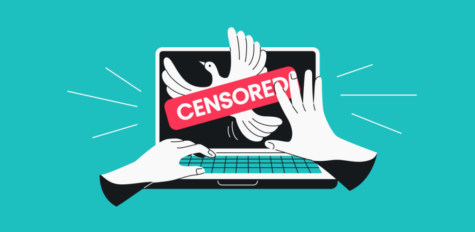
Tyler Pearce | Head Editor
Oct 12, 2023
In the rapidly developing digital landscape of our era, the recent legislation, “Law 230 of the Communications Decency Act,” has swiftly dominated online conversations in concern for its potential impact on the already powerful world of social media.
Law 230 focuses on the operation and content of social media platforms. It mandates these platforms to track, report, and remove certain types of content, in an effort to limit the spread of misinformation, hate speech, and other harmful online risks. With the weight of non-compliance carrying heavy penalties, platforms are now under immense pressure to fall in line.
Many advocates support the legislation, viewing it as a pivotal step toward creating a safer online environment. With a strict content filtering mechanism, they argue, users might find safety in a digital world that’s increasingly becoming filled with endless dangerous information. Additionally, it offers platforms a clear-cut operational guideline, eliminating the uncertainties that often plague the digital world.However, this newfound legislative law is not without its critics, who argue that its reach might be more overbearing than protective. Senior Anna Kerzhanovich states “I believe that this law could potentially infringe upon my personal rights to privacy on social media”. One of the primary opponents argued the legislation’s ambiguity. The parameters that define “harmful” content or “misinformation” remain unclear, opening the doors to potential misuse and possible suppression of valid opinions or even facts.

There’s an undeniable fear that, given the emphasis on rapid content removal, platforms might default to a traditional or conservative stance, opting to remove content merely controversial rather than genuinely harmful. Has the potential to infringe upon free speech, a cornerstone of the online digital world.
Data privacy advocates also question Law 230. To meet its powerful tracking and reporting requirements, platforms might need to intensify their surveillance mechanisms, potentially infringing on users’ privacy rights. Senior Mika Kuhne thinks “how much longer until they place cameras to watch us all day every day?” This is an interesting question given that this is already happening in many countries around the world.
And it’s not just the “digital-savvy” that need to worry. Smaller platforms, with their limited resources, might find compliance challenging, potentially leading to a skewed online platform where only billion-dollar companies and online pages can thrive.
As the world navigates the complexities of the digital age, balancing safety with freedom becomes a recurring topic. Law 230, with its blend of protective measures and potential threats, only time will determine if it’s the right step forward or an unnecessary leap.

Leave a Reply